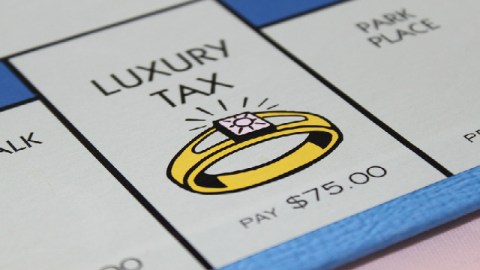Reactions to the Wealth Tax

I’ve received dozens of emails since my New York Times op-ed proposing a wealth tax came out on Monday. My goal with the piece was primarily to refocus the inequality debate in the United States on wealth, rather than income. Wealth inequality in the United States is among the most extreme in the world (though international comparisons should be taken with a grain of salt) and has been worsening for the past two decades. I think it’s urgent that we do something about it, but not everyone agrees. Here are some of the most common negative reactions to my piece, and my responses:
Why do you want to take away my nest egg? The short answer is, I don’t. In the article, I suggest a $500,000 exemption and a tax rate of 1 percent up to $1 million. Above that, the rate is 2 percent. Equally important, my proposal includes a phase-in with a higher exemption and lower rate. If the phase-in lasted 10 years, with no concurrent income taxes, then family with a $2 million nest egg would pay just $10,000 in tax each year. That hardly seems burdensome, but I’d definitely be open to a higher initial exemption and correspondingly higher rates for larger amounts of wealth.
Isn’t taxing capital a bad idea? Some economists believe very deeply that taxing capital – assets that earn a return – is a bad idea. They worry that it makes production inefficient, lowers wages, and distorts the choice between consuming today and consuming in the future. That’s what the theory says, but there’s not much empirical evidence for these distortions. Research on the estate tax by the Brookings Institution, the Treasury Department, and others has uncovered relatively little influence or even contradictory effects on saving. And anecdotally, the spending habits of the super-rich don’t seem too responsive to tax rates. In his first term, George W. Bush gave us perhaps the greatest experiment in reducing taxes on capital – but the effect on saving was imperceptible. Recently, two of the top economists who study inequality have suggested that taxes on capital may be part of an optimal – that is to say, maximally efficient – tax system.
A wealth tax is unconstitutional. This may be correct. The Constitution forbids the federal government from collecting “direct” taxes, such as a tax on land, except if the revenues are divvied up between the states. The Sixteenth Amendment was ratified in 1913 so that the federal government could collect today’s income tax. With public support, another amendment could certainly be added to allow a tax on wealth. It’s been done before and can be done again.
You’re a Communist/socialist/moron. These reactions mostly fell into the hate mail folder. I love hate mail, actually, because it makes me feel important. If it’s ignorant hate mail, then it also makes me feel superior! So hate mail is great; it makes the sender feel better, and it makes me feel better, too. But seriously, there are a lot of people who object to any kind of redistribution. I’m not one of them. I think – and the International Monetary Fund agrees – that too much inequality slows economic growth, reducing the size of the pie for all of us. I worry that with our extreme polarization of wealth, access to opportunity will depend more on money and connections, and less on talent and effort. I also think every child should have access to opportunity, regardless of how their parents have performed economically. But if we focus only on programs for children, we won’t do anything about the current wealth inequality for 30 or 40 years. By then, we will essentially have returned to feudalism – the very thing the founders of this nation wanted to escape.
P.S. If you sent me your own tax plan, I may read it, but I’ll only write about it if I like it.
P.P.S. If you confuse income and wealth inequality in your criticism, I won’t respond.
P.P.P.S. If you use abusive language in an email, your mother will not be happy. Yes, I’m talking about your mother.
Image credit: PT Money





